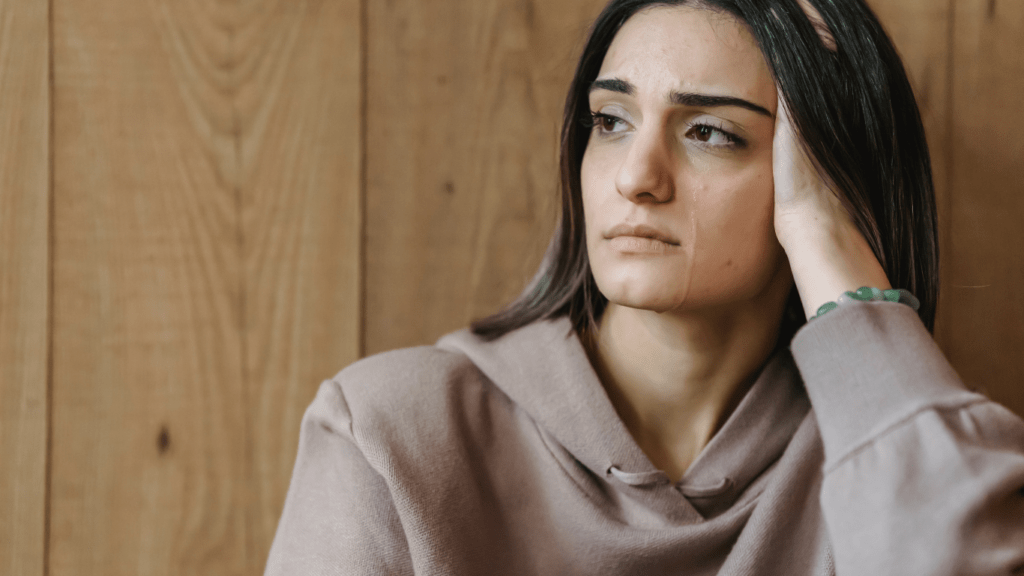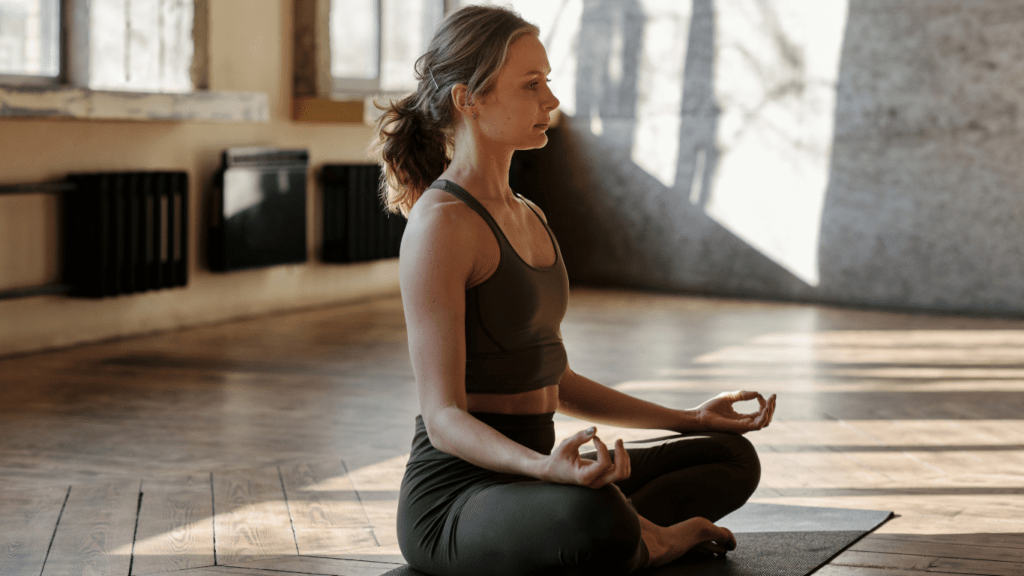Understanding Anxiety
Anxiety manifests as a mix of emotions, thoughts, and physical responses. It ranges from mild worry to severe panic attacks. According to the National Institute of Mental Health, about 19.1% of US adults have an anxiety disorder. These include Generalized Anxiety Disorder (GAD), Social Anxiety Disorder, and Panic Disorder.
Common symptoms include excessive worry, restlessness, and difficulty concentrating. For instance, individuals might experience rapid heart rate, sweaty palms, or dizziness during an anxiety episode. Recognizing these symptoms matters because early identification leads to more effective management.
Anxiety often stems from a combination of genetic, environmental, and lifestyle factors. For example, family history, trauma, and prolonged stress contribute significantly. Understanding these triggers aids in developing personalized coping strategies. Studies have shown that cognitive-behavioral therapy (CBT) is effective in treating anxiety.
Lifestyle changes also play a crucial role. Regular exercise, a balanced diet, and sufficient sleep help reduce anxiety levels. Practicing mindfulness and meditation has shown promise in managing symptoms, providing individuals with practical tools to regain control of their calm.
Causes of Anxiety
Understanding the root causes of anxiety is essential for effectively managing it. Let’s explore the primary factors.
Biological Factors
Biological factors significantly contribute to anxiety. Genetics play a crucial role, with individuals having family members with anxiety disorders being more likely to experience anxiety themselves. Neurotransmitter imbalances, particularly involving serotonin and dopamine, can lead to heightened anxiety levels. Hormonal changes, such as those occurring during pregnancy or menopause, often trigger anxiety symptoms. Studies show that chronic illnesses like heart disease and diabetes are linked to increased anxiety.
Environmental Factors
Environmental factors also impact anxiety levels. High-stress environments—like those involving work pressure or family conflicts—often elevate anxiety. Traumatic events, such as accidents or natural disasters, significantly contribute to the development of anxiety disorders. Social factors, including isolation or inadequate support systems, exacerbate feelings of anxiety. Additionally, lifestyle choices, such as substance abuse and poor sleep quality, are environmental contributors to anxiety.
Techniques to Manage Anxiety
Reducing anxiety requires practical techniques anyone can use. Incorporating these methods into daily life promotes emotional balance and mental clarity.
Mindfulness and Meditation

- Harnessing the power of the present moment through mindfulness and meditation eases anxiety.
- Daily practices, even for five minutes, significantly reduce stress levels.
- Apps like Headspace and Calm offer guided meditations, making it accessible for beginners.
- Mindfulness involves focusing on breathing, avoiding judgmental thoughts, and acknowledging emotions without attaching to them.
- Studies indicate regular meditation decreases anxiety symptoms by up to 39% (JAMA Internal Medicine).
Physical Exercise
Exercising regularly improves mental health. Physical activity releases endorphins, which act as natural stress relievers. Even 30 minutes of moderate exercise, such as walking or yoga, three times a week, shows significant anxiety reduction. The Anxiety and Depression Association of America cites exercise as a proven strategy to lessen anxiety symptoms. Activities like aerobic exercises boost heart health and positively affect mood, showcasing a dual benefit.
Cognitive Behavioral Therapy (CBT)
CBT focuses on identifying and changing negative thought patterns. This structured, short-term therapy approaches anxiety by modifying distorted thinking. I found CBT effective in understanding my anxiety triggers and developing healthier coping mechanisms. According to the American Psychological Association, 60-80% of patients report significant improvements. Seeking a trained therapist to guide through CBT ensures effective and personalized treatment.
Breathing Exercises
Controlled breathing counters anxiety by inducing a calming effect. Techniques like diaphragmatic breathing and 4-7-8 breathing restore a sense of control. For instance, diaphragmatic breathing involves deep breaths from the diaphragm instead of shallow chest breathing. Practicing these exercises for just five minutes daily lowers heart rate, eases tension, and brings clarity. Integrating these into routines aids in managing anxiety on-the-go.
Lifestyle Changes for Anxiety Management
Lifestyle changes play a crucial role in managing anxiety effectively. By adopting healthier habits, individuals can create a balance that supports their mental well-being.
Healthy Diet
A healthy diet significantly impacts anxiety management. Foods rich in omega-3 fatty acids like:
- salmon
- walnuts
- flaxseed
may reduce anxiety according to research published in the Journal of Clinical Psychiatry. Similarly, complex carbohydrates, found in whole grains and legumes, can stabilize blood sugar levels and boost serotonin production. Avoiding caffeine and sugar, which can exacerbate anxiety symptoms, is equally important. Including a variety of fruits and vegetables ensures a balanced nutrient intake, supporting overall mental health.
Adequate Sleep
Adequate sleep is essential for anxiety management. The National Sleep Foundation notes that adults require 7-9 hours of sleep per night for optimal health. Poor sleep can elevate stress hormones, worsening anxiety symptoms. Creating a restful sleep environment, such as a dark, quiet, and cool room, promotes better sleep quality. Establishing a consistent sleep schedule helps regulate the body’s internal clock, making it easier to fall asleep and wake up refreshed. Limiting screen time before bed, which can interfere with melatonin production, also supports healthier sleep patterns.
Seeking Professional Help
Sometimes managing anxiety on your own isn’t enough. That’s when seeking professional help becomes vital. Mental health professionals, including psychologists, psychiatrists, and licensed therapists, can offer guidance and treatments tailored to individual needs.
Psychologists
Psychologists specialize in diagnosing and treating mental health disorders. They use techniques like cognitive-behavioral therapy (CBT) and psychotherapy to help individuals understand and manage their anxiety. If one’s looking for someone to help navigate deep-seated issues or thought patterns contributing to anxiety, a psychologist might be the right choice.
Psychiatrists
Psychiatrists are medical doctors who can prescribe medication to manage anxiety symptoms. They often work with patients experiencing severe anxiety that doesn’t respond well to other treatments. Medications like selective serotonin reuptake inhibitors (SSRIs) and benzodiazepines are commonly prescribed, depending on the specific needs of the patient.
Licensed Therapists and Counselors
Therapists and counselors provide support through talk therapy, helping individuals develop coping strategies and better understand their anxiety. They often use methods like CBT and mindfulness-based stress reduction (MBSR). When one’s struggling with situational anxiety or needs short-term support, a licensed therapist or counselor can offer valuable assistance.
Support Groups
Support groups offer a community of individuals dealing with similar issues. Led by a therapist or counselor, these groups provide a space to share experiences, learn from others, and offer mutual support. This collective environment can be particularly beneficial for those feeling isolated by their anxiety.
Choosing the Right Professional
Finding the right mental health professional depends on individual needs and preferences. Factors to consider include the severity of anxiety, the type of treatment one is comfortable with, and whether there’s a need for medication. Researching professionals’ credentials and reading reviews can also help in making an informed decision. Each professional type offers unique benefits, and it’s important to find the one that aligns best with one’s specific circumstances.


 Amelie Glover played a pivotal role in shaping the success of News Flip Network through her expertise and dedication. With a keen eye for detail, she focused on ensuring the platform’s content flows smoothly, making it both engaging and informative. Glover’s efforts in organizing the site’s structure and managing editorial tasks helped create a seamless user experience, enhancing the accessibility of news for readers around the world.
Amelie Glover played a pivotal role in shaping the success of News Flip Network through her expertise and dedication. With a keen eye for detail, she focused on ensuring the platform’s content flows smoothly, making it both engaging and informative. Glover’s efforts in organizing the site’s structure and managing editorial tasks helped create a seamless user experience, enhancing the accessibility of news for readers around the world.